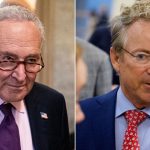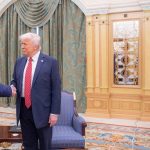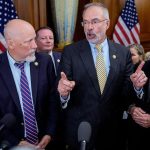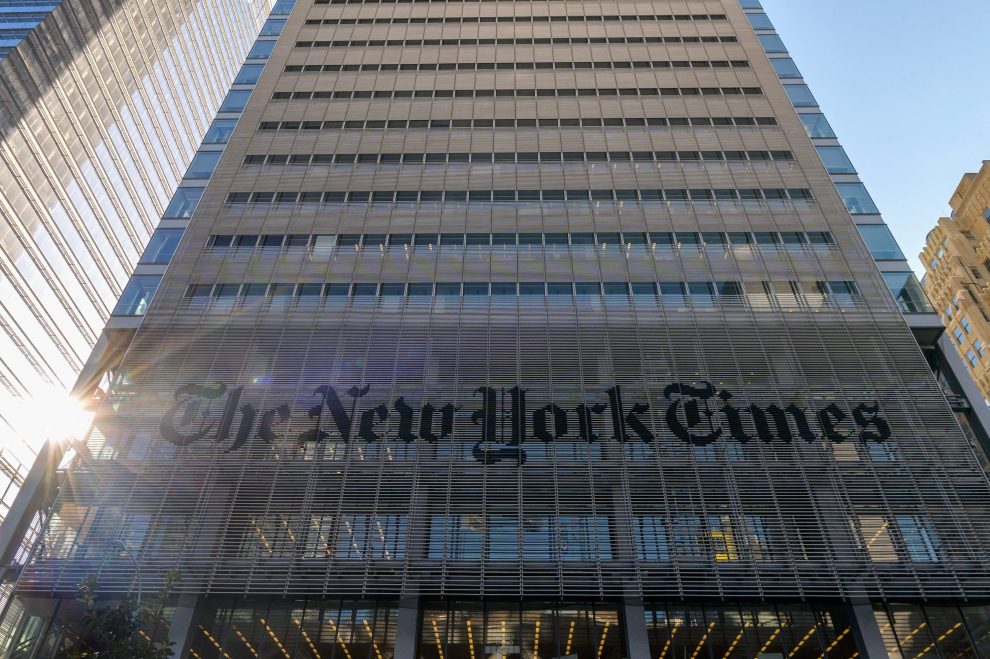The Columbia Journalism Review (CJR) has issued a scathing indictment of the New York Times for yellow journalism during the Trump-Russia saga.
The @CJR review of post-2016 reporting is long, but important.
The TL;DR conclusion:
corpo media knowingly suppressed facts that cut against popular narratives,
ignored denials,
eagerly laundered partisan attacks via "anonymous sources,"
and refuses to reflect on mistakes. pic.twitter.com/PW27ztjxfi
— Edward Snowden (@Snowden) January 31, 2023
That said, CJR aimed the majority of criticism towards the NYT.
“No narrative did more to shape Trump’s relations with the press than Russiagate. The story, which included the Steele dossier and the Mueller report among other totemic moments, resulted in Pulitzer Prizes as well as embarrassing retractions and damaged careers,” wrote CJR executive editor Kype Pope in an editor’s note.
The findings were published in a lengthy, four-part series. The first section begins with a story about then-New York Times executive editor Dean Baquet’s reaction when he found out Special Counsel Robert Mueller didn’t plan to pursue Trump’s ousting, telling his staff “Holy s—, Bob Mueller is not going to do it.” -Fox News
“Baquet, speaking to his colleagues in a town hall meeting soon after the testimony concluded, acknowledged the Times had been caught ‘a little tiny bit flat-footed’ by the outcome of Mueller’s investigation,” according to Jeff Gerth – the author of CJR’s lengthy retrospective.
“That would prove to be more than an understatement,” he continued. “But neither Baquet nor his successor, nor any of the paper’s reporters, would offer anything like a postmortem of the paper’s Trump-Russia saga, unlike the examination the Times did of its coverage before the Iraq War.”
According to Gerth, the Times destroyed its credibility outside of its “own bubble.”
The 4-part series just published by the Columbia Journalism Review — written by Pulitzer-Prize-winning Jeff Gerth, for decades with the NYT — is absolutely devastating on how casually, frequently, recklessly and eagerly the press lied on Russiagate.https://t.co/bNCGg48Xfi
— Glenn Greenwald (@ggreenwald) January 31, 2023
What’s more, the Times appeared to legitimize former British spy, Christopher Steele, who was indirectly paid by the Clinton campaign to fabricate the infamous ‘dossier’ that so much of the Russiagate coverage – and the DOJ’s sham investigation, was based on.
The Times appeared to legitimize Christopher Steele, the ex-British spy who authored the infamous dossier, claiming he had “a credible track record” while Steele’s so-called “primary” source was telling the FBI that Steele “misstated or exaggerated” in his report and that information stemming from Russia was “rumor and speculation.”
Part three offered examples of the Times’ slight-of-hand coverage against Trump in comparison to other hostile outlets. For example, Trump explained his decision to fire FBI Director James Comey, mentioning the “Russia thing” as being a “made-up story” to NBC’s Lester Holt but acknowledged the firing would likely “lengthen out the investigation.”
“The media focused on the ‘Russia thing’ quote; the New York Times did five stories over the next week citing the ‘Russia thing’ remarks but leaving out the fuller context. The Post and CNN, by comparison, included additional language in their first-day story,” Gerth wrote.
In another instance, the Times avoided covering some of the more damning texts from Peter Strzok, who wrote “there’s no big there, there” shortly after the appointment of Special Counsel Robert Mueller, something Gerth noted was covered by the Wall Street Journal and the Washington Post. -Fox News
In closing, Gerth concluded that “the erosion of journalistic norms and the media’s own lack of transparency about its work” is responsible for the broad distrust in the media.
No kidding.
“In January 2018, for example, the New York Times ignored a publicly available document showing that the FBI’s lead investigator didn’t think, after ten months of inquiry into possible Trump-Russia ties, that there was much there. This omission disserved Times readers. The paper says its reporting was thorough and ‘in line with our editorial standards,” wrote Gerth. “Another axiom of journalism that was sometimes neglected in the Trump-Russia coverage was the failure to seek and reflect comment from people who are the subject of serious criticism. The Times guidelines call it a ‘special obligation.’ Yet in stories by the Times involving such disparate figures as Joseph Mifsud (the Maltese academic who supposedly started the whole FBI inquiry), Christopher Steele (the former British spy who authored the dossier), and Konstantin Kilimnik (the consultant cited by some as the best evidence of collusion between Russia and Trump), the paper’s reporters failed to include comment from the person being criticized.”
Story cited here.
























